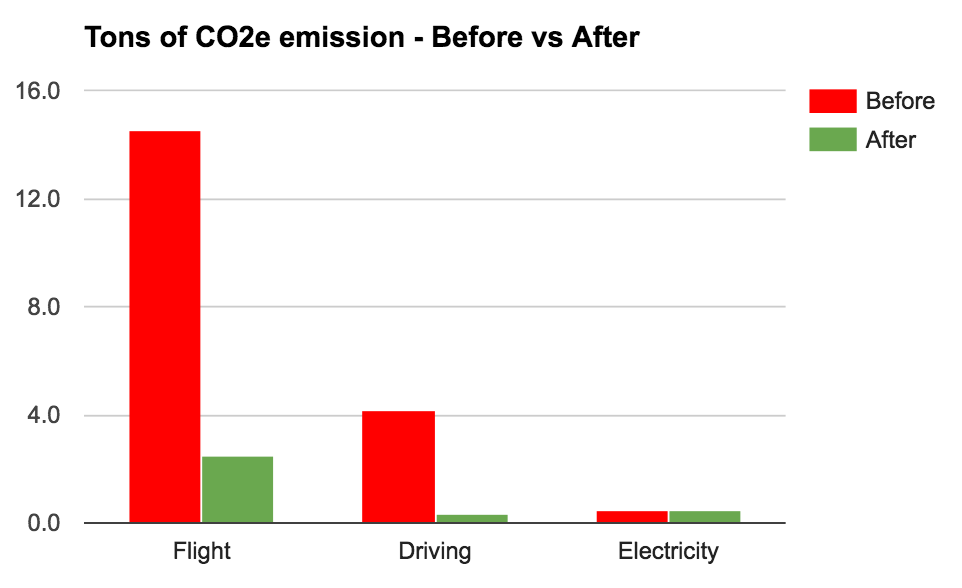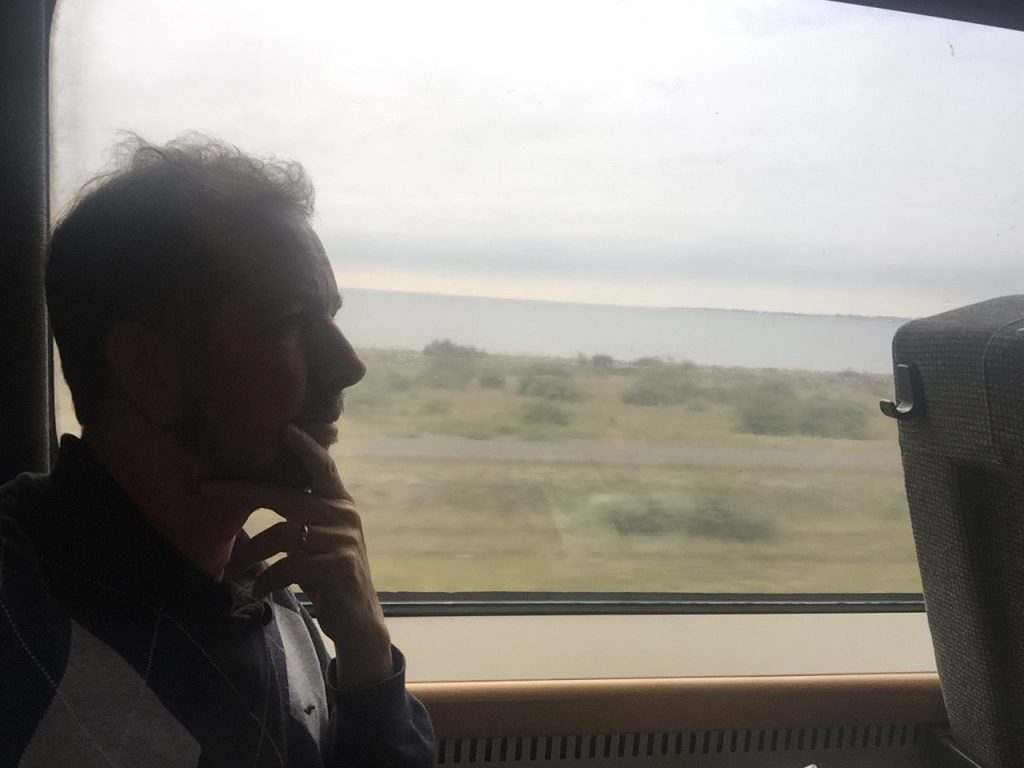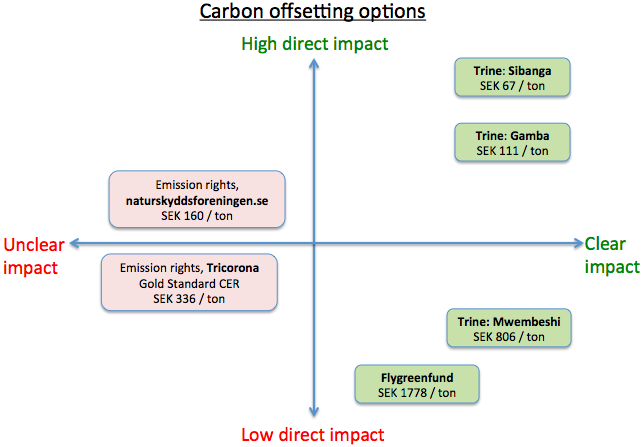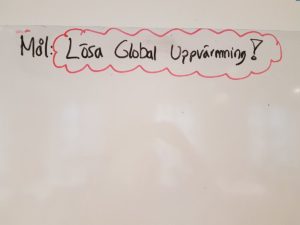If you are a meat eater and you want to become more of a vegetarian (or at least eat more plant stuff and less meat stuff), and you kind of struggle with that because meat tastes good and you’re used to eating it, then this guide is for you! A short pragmatic guide for the
Continue readingDo it for the kids
As climate scientists have long predicted, the world is experiencing a record amount of extreme weather events – droughts, hurricanes, wildfires, flooding, heatwaves, and extreme cold.
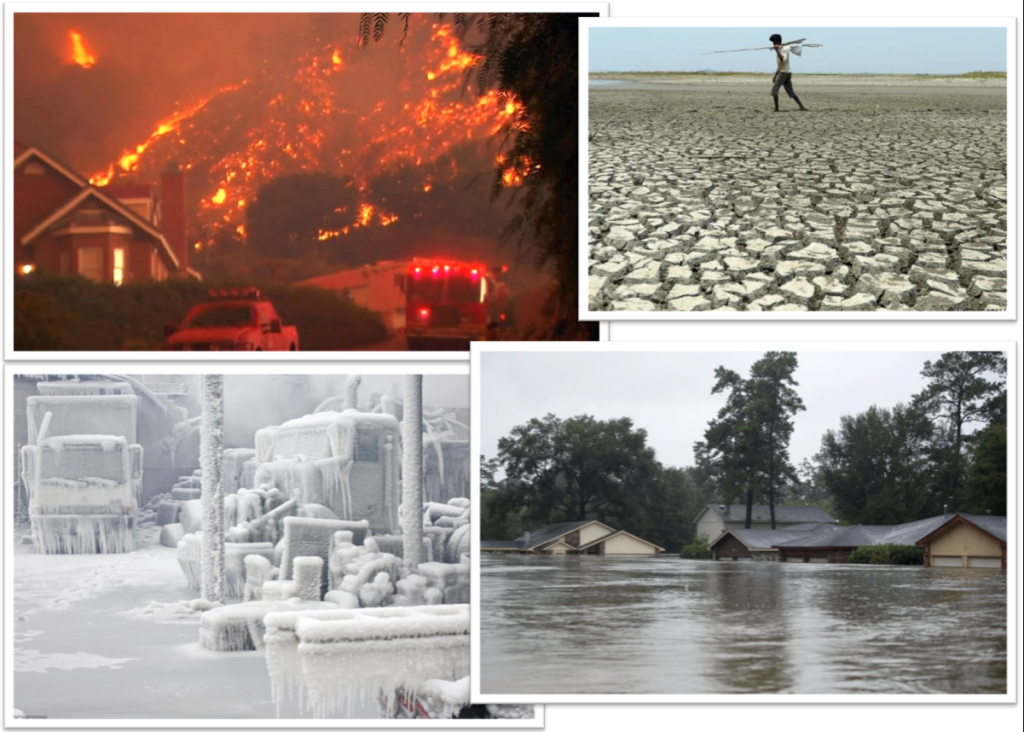
It’s hard to prove if any specific disaster is due to climate change, but that’s not important. The key point is the overall trend: climate change increases the frequency and severity of extreme weather events, and it’s happening really fast. This also creates climate refugees, political instability, and increases the risk of war. Basically, the world is becoming a less and less safe place to live.
This graph (source) is just for the US, but the pattern is worldwide:
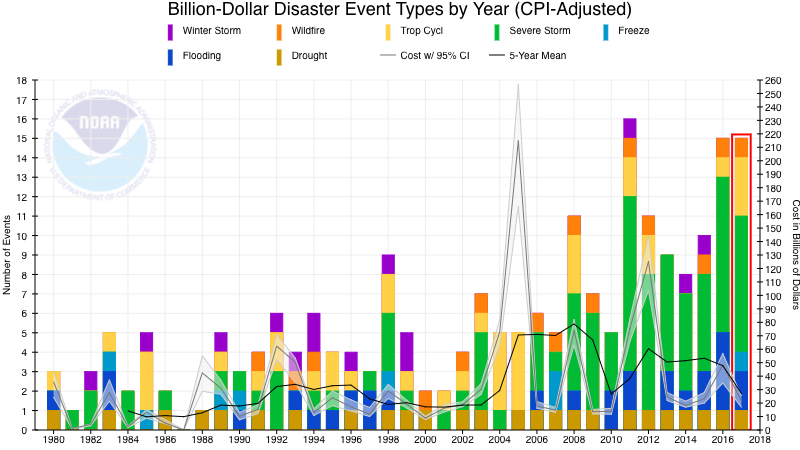
The bad news is this will most likely keep getting worse over the next few decades – even if we were to completely eliminate all CO2 emissions right now. Climate change is like a huge flywheel that we’ve set in motion over the past century, and even when we stop spinning the wheel it will keep going for decades or more, due to inertia.
Here’s something you can actually, really do about climate change
As the devastating consequences of climate change become increasingly obvious (flooding, fires, storms, drought, melting icecaps, rising sea levels, etc), the question on most people’s mind is “what can I actually, really do about it?”. Well, listen up. The most obvious minimum first step is to eliminate your own personal carbon footprint, and become climate
Continue readingIs train a feasible alternative to flying?
As I write this I’m sitting on a train headed back to Sweden, pondering the result of a year’s experimentation with travelling by train instead of flying. Is this an effective way to reduce my carbon footprint? The jury is in! Read on. One common rallying cry among climate advocates is to fly less (or
Continue readingThe Ship – who will you be?
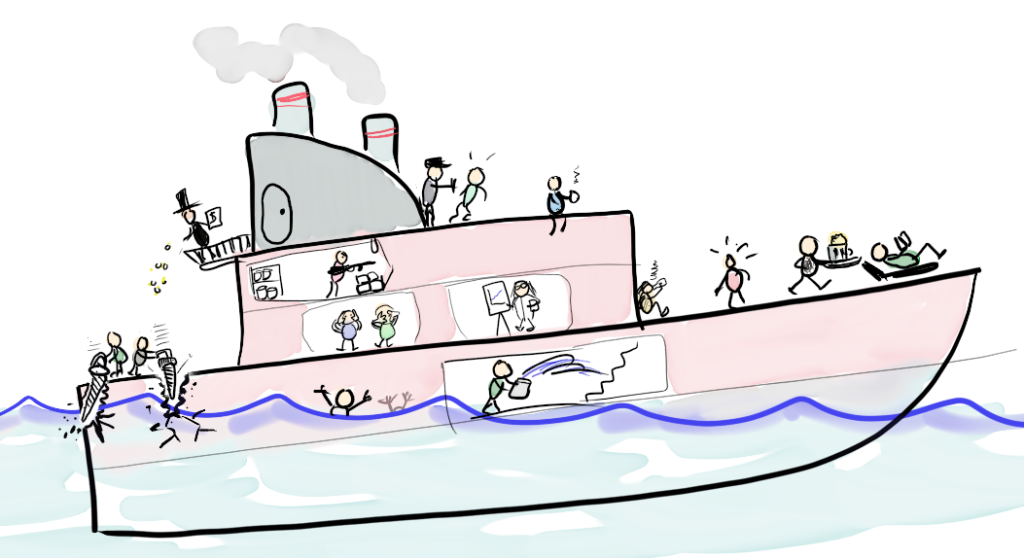
The Ship
For years I was hearing an increasing murmur and rumours about some kind of problem with the ship. Finally I decided to take a closer look, went up to deck, leaned out and looked down, and…. oh sh*t…. this ship is sinking! It’s tilting, some cabins are already flooded, with people frantically crowding the hallways and staircases trying to get to higher deck. It’s happening slowly, very slowly. In fact, the ship won’t be completely sunk during my lifetime probably. But my kids, and grandkids…. Darn!
So what’s going on here? I start roaming around, talking to people.Continue reading
Effective carbon offsetting – what we’ve learned and what we’re doing
Flying causes global warming. That sucks. But neverthless, we fly sometimes. Conferences, vacations, business trips. So what can we do? Well, here’s a simple rule of thumb:
- Fly as little as possible. Reduce the frequency & distance. Consider train for shorter trips.
- When you do fly, make sure you carbon offset. From wikipedia: “A carbon offset is a reduction in emissions of carbon dioxide or greenhouse gases made in order to compensate for or to offset an emission made elsewhere.”
The obvious question then is – HOW do you carbon offset? I was surprised when I dug into it. “Traditional” carbon offsetting (buying emission credits and things like that) seems pretty useless! I couldn’t find any credible evidence that it makes a real difference! Almost like a scam.
So is there another way to carbon offset? Yes! This chart summarizes some of what I’ve learned so far. Read on for details. Got any more suggestions? Add comments. But please quantify.
UPDATE (Jan 2018): We’ve created a service to provide effective carbon offsetting. Check out GoClimateNeutral.org
(see this spreadsheet for the underlying numbers)Continue reading
10 years of Agile @ Crisp. Next challenge: Global Warming!
10 years ago, 2007, me and a few Crisp colleagues embarked on a mission: be best in Sweden at helping companies become agile. We had experienced first-hand the power of agile development, and wanted to use this newfound super-power to help both Crisp and our clients improve. Others joined us and – tadaa! – Agile Crisplet was born (and the concept of crisplets)! That was the year I taught my first Certified ScrumMaster course together with Jeff Sutherland, co-creator of Scrum. Since then we’ve co-trained almost 30 courses! About 2-3 times per year. In fact, May 22-23 is our 10 year anniversary (join us at the course in Stockholm!).
Now 10 years has passed since our Agile Crisplet was formed, and I’m happy to see we have achieved more than we ever could have dreamed!
Dispensing with false humility here, we’ve somehow managed to become one of the world leaders in this field! Famous agile and lean experts partner with us. Super well-known product companies, large telecoms and banks, even government organizations, turn to us as first choice for agile guidance and training. Our videos and articles and books have racked up millions of hits, and we are basically overwhelmed with requests to do coaching, write book forewords, do conference talks and workshops, and run training courses. I’ve done almost 30 keynotes in 20+ countries. I’m amazed (and overwhelmed) every time I look at my inbox, I’ve had to hire an assistant just to turn down the 95% of all requests that we simply don’t have capacity to handle.
OK, so now what?
10 years is a long time, and now it’s time for a new focus! At least for me (Crisp is a no-CEO company where people are free to do whatever they want).
Mål: Lösa global uppvärmning
Igår möttes 9 av oss på Crisps kontor för att diskutera vad vi kan göra för klimatet. För många av oss på Crisp ligger denna fråga nära hjärtat. Tyvärr är det som konsult inte alltid lätt att hitta passande uppdrag. Men klimatfrågan är planetens största utmaning, och många av oss vill inte längre sitta inaktiva.
Continue readingGlobal warming – simplified summary
OK, here’s a (very) simplified summary of what I’ve learned about global warming after digging deep the past few weeks.
- Global warming is a major threat to life as we know it. It’s ALOT worse than most people realize.
- Global warming is caused (mostly) by increasing CO2 in the atmosphere.
- The CO2 increase comes (mostly) from us burning oil & coal (“fossil fuels”). Adds about 20-30 billion tons of CO2 per year.
- So we need to (mostly) stop burning oil & coal.
- We burn oil & coal (mostly) for electricity and transport. Coal power plants, car/plane/ship fuel, etc.
- We want to keep electricity and transport, but we also want to stop global warming, therefore we need to get electricity and transport without burning oil & coal.
- We know how to do that (solar, wind, electric cars, etc). The technology has been figured out, and the prices are at the tipping point where oil & coal can’t compete economically.
- So now we just need to hurry up and roll out those solutions! Every single reduced ton of CO2 counts.
- Unfortunately shit is going to hit the fan either way (because it’s already launched so to speak), but at least we can slow it down, reduce the impact, and buy us some time.
So pull whatever strings you can to help out – technology, policy, economy, communication, etc. Inform yourselves & each other. People have varying degrees of discretionary time, money, knowledge, voting power, contacts, influence, and motivation. But the more people try to help in one way or another, the more difference it will make as a whole.
Did the math on my contribution to global warming
I was curious about how many tons of carbon dioxide that my family pumps into the atmosphere (= global warming). Looked at the most direct variables: flying, driving, and home electricity. There are obviously more variables to look at (like beef!), but I’m starting with these three, as the data is readily available and I gotta start somewhere.
Result (updated):
- Flying = 14.6 tons per year
- Driving = 4.1 tons per year
- Electricity = 0.5 tons per year
So, 19 tons of CO2 per year. Damn! Sorry about that, earth and future generations. Good news is that I now know how to reduce it by ALOT (like 5 times less)!
